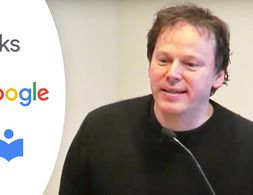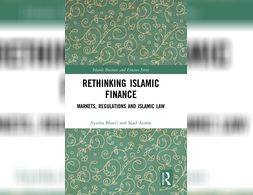✕
309 results
This module examines current socio-political issues through the lens of pluralism, that is pluralism of theory, pluralism of method and interdisciplinary pluralism
This lecture of the anthropologist David Graeber gives a brief introduction to the thoughts of his 2011 published book Debt: The First 5000 Years.
Commons stand for a plurality of practices ‘beyond market and state’ as the famous Commons scholar – and first female noble prize winner of economics - Elinor Ostrom put it. Their practice and theory challenge classical economic theory and stand for a different mode of caring, producing and governing. Within this workshop we want to dive into theory, practice and utopia of Commons following four blocks...
Exploring Economics, an open-source e-learning platform, giving you the opportunity to discover & study a variety of economic theories, topics, and methods.
After completing the workshop in Post Keynesian Economics participants should be able to describe the main differences and similarities between PKE and other schools of thought.
A comprehensive account of how government deficits and debt drive inflation
This article reviews insights of existing literature on global care chains. A specific focus is laid on the impact that the refugee crisis has on global care chains and in turn how the crisis impacts the de-skilling of the women in the migrant workforce.
This essay focuses on the sources of government revenue within the Middle East and North African (MENA) region and proposes the implementation of a regional tax reset through increased taxation and tax reforms, deregulation in the private sector and economic diversification to reduce macroeconomic volatilities caused by the hydrocarbon industry.
One of the pluralist theories which has gained prominence following the 2008 financial crisis is Hyman Minsky and his Financial Instability Hypothesis (FIH). Minsky was unique in viewing balance sheets and financial flows as the primary components of capitalist economies, and his focus on the financial system meant he was well-equipped for foresee a crisis much like 2008. Although he died long before 2008 his framework anticipated many of the processes which led to the crash, particularly increased risk-taking and financial innovation which would outstrip the abilities of regulators and central banks to manage the system.
One hundred years ago the idea of 'the economy' didn't exist. Now, improving the economy has come to be seen as perhaps the most important task facing modern societies. Politics and policymaking are conducted in the language of economics and economic logic shapes how political issues are thought about and addressed.
Jason Smith takes a stab at blind faith in the efficiency of the price mechanism to provide market information. To do so, he calls upon Information Theory and Generative Adversarial Networks to argue the price mechanism is faulty and skewed towards supply.
This is an introductory level core course in macroeconomics for those expecting to take further courses in economics. It provides a theoretical and applied approach of introductory macroeconomics, with an international perspective and applications to account for the growing importance of the global economy and the rising openness of economies.
After completing the module, participants should be able to understand the economic consequences of gender inequality. They should be able to explain the contradictions between capital and care, analyze the labor market with a gender perspective and develop the ability to describe phenomena such as public policies taking into account "gender" as a category of analysis.
The goal of the course is to deepen students’ understanding of the Latin American development experience by viewing it through a gender lens.
This syllabus provides an overview of the content of the Philosophy of Economics course at the University of Wisconsin-Madison.
Understanding the financial crisis from four very different economic theories: Social Economics, Institutional Economics, Post Keynesian economics.
Photo by Alina Grubnyak on Unsplash Networks are ubiquitous in our modern society The World Wide Web that links us to and enables information flows with the rest of the world is the most visible example It is however only one of many networks within which we are situated Our …
As the current economic crisis spreads around the globe questions are being asked about what king of capitalist or post-capitalist economy will follow. There is increasing talk of the need for stringent economic regulation, the need to temper greed and individualism, to make the economy work for human and social development.
Islamic finance's phenomenal growth owes to the Shariah compliant nature of its financial instruments. Shariah forbids the charging of interest (Riba) and instead promulgates risk-sharing and trade-based modes of financing. The Islamic financial industry has been subject to both critique and admiration. Critics argue that Islamic instruments (bearing debt-based structures) differ from their conventional counterparts only in legal lexicon and not in economic impact.
Part I: Basic Economic Problems Is Economics a Science? Is It Useful? (Lawrence Boland, Ian Parker) Is There Such a Thing as a Free Market? (William Watson, Robert Prasch) Part II: Consumers and Firms Is Homo Economicus an Appropriate Representation of Real-World Consumers? (Joseph Persky, Morris Altman) Is the Consumer Sovereign?
The world of economics is changing. Years of turmoil in the global economy mean that nothing will ever be quite the same again. This is the starting point and theme of this radically revised Economist books classic.
Microeconomics in Context lays out the principles of microeconomics in a manner that is thorough, up to date, and relevant to students. Like its counterpart, Macroeconomics in Context, the book is uniquely attuned to economic realities. The "in Context" books offer affordability, accessible presentation, and engaging coverage of current policy issues from economic inequality and global climate change to taxes.
Mr Minsky long argued markets were crisis prone His moment has arrived The Wall Street Journal In his seminal work Minsky presents his groundbreaking financial theory of investment one that is startlingly relevant today He explains why the American economy has experienced periods of debilitating inflation rising unemployment and marked …
Noneconomists often think that economists' approach to race is almost exclusively one of laissez-faire. Racism, Liberalism, and Economics argues that economists' ideas are more complicated.
Some economic events are so major and unsettling that they “change everything.” Such is the case with the financial crisis that started in the summer of 2007 and is still a drag on the world economy. Yet enough time has now elapsed for economists to consider questions that run deeper than the usual focus on the immediate causes and consequences of the crisis.
Rethinking Regulation of International Finance encapsulates the most important aspects of the development and operation of the international financial system. This book questions the fundamental basis of the existing international financial architecture (soft law) and explores the need for a compliance-based model based on legitimacy of regulations and accountability of the regulatory bodies in international financial stability.
From the two premises that (1) economies are complex systems and (2) the accumulation of knowledge about reality is desirable, I derive the conclusion that pluralism with regard to economic research programs is a more viable position to hold than monism. To substantiate this claim an epistemological framework of how scholars study their objects of inquiry and relate their models to reality is discussed. Furthermore, it is argued that given the current institutions of our scientific system, economics self-organizes towards a state of scientific unity. Since such a state is epistemologically inferior to a state of plurality, critical intervention is desirable.
This paper starts with an evaluation of three common arguments against pluralism in economics: (1) the claim that economics is already pluralist, (2) the argument that if there was the need for greater plurality, it would emerge on its own, and (3) the assertion that pluralism means ‘anything goes’ and is thus unscientific. Pluralist responses to all three arguments are summarized. The third argument is identified to relate to a greater challenge for pluralism: an epistemological trade-off between diversity and consensus that suggests moving from a discussion about ‘pros’ and ‘cons’ towards a discussion about the adequate degree of plurality. We instantiate the trade-off by showing how it originates from two main challenges: the need to derive adequate quality criteria for a pluralist economics, and the necessity to propose strategies that ensure the communication across different research programs. The paper concludes with some strategies to meet these challenges.
Stratification economics is defined as a systemic and empirically grounded approach to addressing intergroup inequality. Stratification economics integrates economics, sociology and social psychology to distinctively analyze inequality across groups that are socially differentiated, be it by race, ethnicity, gender, caste, sexuality, religion or any other social differentiation.
The outbreak of COVID-19 has substantially accelerated the digitalization of the economy. Yet, this unprecedented growth of digital technology brought novel challenges to the labour market. Rise in income inequalities and precarious working conditions or polarization of jobs. In this essay, we try to assess what tools to use to counter these trends.
Participants should be able to distinguish the strictly non-cooperative (methodological individualist) foundations of traditional neoclassical economics as being couched in self-interested individuals, as well as having basic knowledge of an alternative set of theories based on the primacy cooperation and social norms and extending the breadth of economic analysis beyond exchange.
Feminist economics focuses on the interdependencies of gender relations and the economy. Care work and the partly non-market mediated reproduction sphere are particularly emphasised by feminist economics.
We use cookies on our website. Click on Accept to help us to make Exploring Economics constantly better!

























